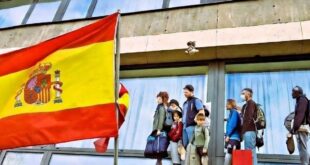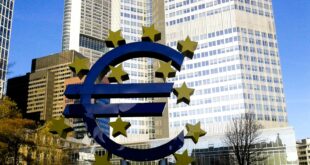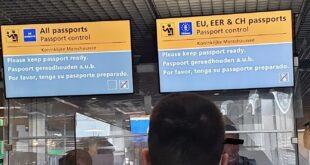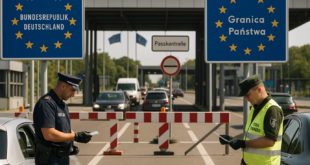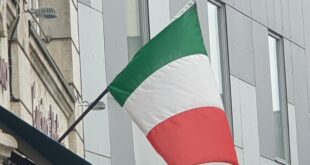As part of the awareness raising campaign for the International Decade for People of African Descent, the Office of the UN High Commissioner for Human Rights hosted a Regional Meeting for Europe, Central Asia and North America in Geneva, Switzerland, on 23-24 November 2017.
[The International Decade for People of African Descent, 2015–2024, was proclaimed by the UN General Assembly and adopted on 23 December 2013. The theme of the Decade is “People of African descent: recognition, justice and development”. The Decade highlights the human rights situation of the African diaspora worldwide and aims to fight racial discrimination and create visibility for the contribution of people of African descent in the societies they live in.]

The Geneva meeting focused on trends, priorities and challenges at the national and regional levels to effectively implement the Decade’s Programme of Activities. The meeting was also an occasion to exchange good practices.
The regional meeting provided an opportunity to reflect on ways and means that governments from Europe, Central Asia and North America in partnership with equality bodies, national human rights institutions, civil society, development agencies and regional organizations, may pursue to integrate the provisions of the Programmes of Activities in their policies, programmes and strategies tailored for people of African descent.
The meeting brought together Member States, United Nations specialized agencies and bodies, regional organizations, national human rights institutions, equality bodies and civil society representatives, particularly people of African descent from the region. Experts on the topics were also invited to participate in the meeting.

From left to right: Lioba Hirsch, Elizabeth Kaneza (the UN Decade’s Fellow for Germany), Virginia Wangare-Greiner and Dr Hendrik Cremer at the launch of the International Decade for People of African Descent in Germany (7 June 2016) / Photo: © Peter Groth/Engagement Global
Joint Declaration of the German Civil Society Delegation
We the undersigned Members of the German Civil Society Delegation to the Regional Meeting on the International Decade for People of African Descent, 23 – 24.11.2017, in Geneva:
“Welcoming the decision of the United Nations Office of Human Rights to organise and host the Regional Meeting on the International Decade for People of African Descent for Europe, Central Asia and Northern America, in Geneva, Switzerland,
Recalling that the Durban Declaration and Programme of Action has identified People of African Descent as a distinct group, affected by racism, racial discrimination, xenophobia and related intolerance, and recognised that slavery and the transatlantic slave trade were appalling crimes against humanity,
Noting with grave concern that despite three previous UN Decades against racism and racial discrimination, the adoption of the Durban Declaration (2001), the International Year for People of African Descent (2011) and proclamation of the International Decade for People of African Descent (2015-2024), countless People of African Descent continue to be victims of racism and racial discrimination in Europe and Northern America,
Recalling that member states have an obligation under international law to fight racial discrimination and protect victims through legal and social measures. Highlighting especially Article 2 of the International Convention on the Elimination of all Forms of Racial Discrimination (ICERD), stating that “States Parties condemn racial discrimination and undertake to pursue by all appropriate means and without delay a policy of eliminating racial discrimination in all its forms and promoting understanding among all races”,
Recalling that member states have an obligation under international law to protect the rights of People of African Descent as stipulated in the Durban Declaration and Programme of Action and further underlined by General Recommendation 34 of the Committee on the Elimination of Racial Discrimination (CERD) on People of African Descent, Joint Declaration of the German Civil Society Delegation
Welcoming the mandate of the Intergovernmental Working Group for the Effective Implementation of the Durban Declaration and Programme of Action and the mandate of the Working Group on People of African Descent to monitor the human rights situation of People of African Descent,
Recognizing that civil society organisations have made great strides in protecting the human rights of People of African Descent and that without their engagement the human rights situation of People of African Descent would have remained invisible in many countries,
Dedicating ourselves to being active drivers of the International Decade for People of African Descent with the aim to defend the human rights of People of African Descent, create awareness about their history and societal contribution, promote human rights education to prevent the reproduction of racism and stereotypes within society, fight injustice, achieve their full inclusion and participation with regard to their economic, social, political and cultural rights.
Being mandated to represent the people’s voices at this Regional Meeting.
RECOGNITION
We call for the recognition of crimes against humanity committed under European colonialism against Africans.
We underscore the importance of recognising People of African Descent in European history, especially their contribution to human civilisation, by way of creating a complete account of history.
We demand the full recognition of the damages caused by enslavement, colonialism and genocide and support the demand for reparations by the affected peoples.
We especially call for the recognition of the Genocide against the Ovaherero and Nama under German colonial rule and demand that the international community renders justice to their descendants by including them in political negotiations, returning to them their human remains as well as their ancestral land.
We recommend the promotion of knowledge and recognition of the cultures, histories and heritages of People of African Descent, including through research and education and funding for exhibitions and programmes at museums and cultural centres.
We demand a truthful representation of the history of enslavement and colonialism in academic history books and other sources.
We note that today the exhibition and display of cultural artefacts is a practice by government-funded museums that refuse the dialogue with the societies and cultures to which the artefacts belong. Often these objects displayed as art in Germany are in fact looted art or important, which has been brought to Germany during Germany’s colonial period. We therefore demand an end to a historical exposition – out of context – of looted art in German museums.
We demand the funding of provenance research as well as a societal discussion on colonialism and
We demand that People of African Descent are to be included as experts in the process of historical rehabilitation.
We are very concerned about the recent severe human rights violations of People of African Descent on the European borders, re-exposing neo-colonial structures and enslavement.
We therefore demand for all European states to take strong actions against the abuses, as well as a change of the European border politics that continues to lead to uncountable deaths in the Mediterranean Sea.
We demand the end of degrading imagery and stereotyping of People of African Descent, such as black-facing in cultural events and mainstream media in European states.
We recommend expanding the scope of existing political education programmes to include the history and social contribution of People of African Descent.
We recommend a sustainable funding for human rights education on People of African Descent in order to enable People of African Descent to claim their human rights.
We call for recognition of multidimensional discrimination of People of African Descent. They especially experience intersecting grounds of discrimination such as ethnicity, descent, skin colour, gender, class, age, ability, sexual orientation and religion. These intersections aggravate the extent of discrimination faced by People of African Descent and jeopardises their economic, social and political rights.
JUSTICE
We note that People of African Descent are a group vulnerable to marginalisation and racism.
Therefore victimization by state authorities has an especially severe effect on them.
We note with grave concern that racial profiling is a widespread practice in European states, affecting People of African Descent in a disproportionate manner. Racial Profiling is a human rights violation, undermining the rights and dignity of People of African Descent. Additionally there is no supportive data to justify this practice.
We therefore recommend:
- to repeal laws and norms authorizing the police to stop and search without reasonable cause;,
- that norms formulated in a broad way, have to be altered so to limit the discretionary powers of the individual police officer;
- that abusive behaviours should be sanctioned by an independent body;
- that police officers should be obliged to explain the alleged reason for any “stop and search”, those reasons should be given to the subject in a ticket (protocol of the stop and search);
- that there should be programmes to combat unconscious racial bias among police officers;
- that there should be mandatory anti-racism trainings for all police officers especially for those at a higher rank.
We condemn brutality exercised by state authorities, which in grave cases lead to the death of People of African Descent at the hands of the police or in police custody.
We note that there is a lack of prosecution and sanction of racist crime.
We demand a comprehensive investigation on any case of police brutality by an independent task force that should not include active police officers.
We recommend competent independent bodies to protect complainants and comprehensively register allegations of racial discrimination.
We demand standardized and extended research and documentation of police brutality against People of African Descent in Germany and other European states.
We demand justice for victims of police brutality and adequate compensation to their families.
We call for equal access for People of African Descent to the justice system, including the access to effective and adequate remedies.
Therefore we recommend implementing the right to initiate collective legal actions by civil society organisations in incidences of racism and other forms of discrimination. Until now this right is denied in several states including Germany.
DEVELOPMENT
We are concerned about the underdevelopment of People of African Descent in European states, reflected in their exclusion from quality education, especially higher education, adequate employment and lack of access to housing. People of African Descent continue to suffer disproportionately from poverty.
We note with concern that community organisations are underfunded, a situation that limits their ability to promote the human rights of People of African Descent in a sustainable manner. We therefore demand the structural and sustainable funding of civil society organizations and their equal access to public funds.
Germany has one of the lowest levels of social mobility. People of African Descent are especially vulnerable to this social imbalance undermining their economic, social, political and cultural rights.
We note that data trends demonstrate that People of African Descent systematically have higher unemployment rates than the national average of the German population.
We therefore demand to take positive measures to address the structural disadvantages of People of African Descent in the field of employment, including:
- establishing public duties to promote equality and increase diversity within all public bodies;
- developing special measures and traineeships for People of African Descent;
- creating subsidised government schemes and guidelines that encourage diversity in private companies at all levels;
- strengthening rules and practices of labour inspections to combat exploitation of migrants and reinforce complaint mechanisms for access to legal redress for migrants.
We note that racism has a negative impact on the health of People of African Descent by causing trauma leading to mental and physical health problems.
We demand to conduct health outreach activities in cooperation with African Descent populations to better inform communities of how they can progress in utilising health systems.
We note with great concern that students of African Descent face institutional discrimination and exclusion by teachers, counsellors, administrators, as well as students based on their skin colour, ranging from stereotyping to unduly placing children of African Descent in segregated, special and/or vocational education schooling.
We therefore demand to take steps to combat racism, individual and structural discrimination in the educational system. This should include:
- providing vocational training on non-discrimination and diversity for school administrators and teachers;
- conducting independent reviews of grades and records of students of African Descent being sent to ‘special education’;
- providing counselling, student mediation and psychological services to student African Descent being victims of racism;
- ensuring legal consequences and sanctions on discriminatory behaviour by teachers, counsellors, administrators and other decision-makers in institutional structures;
- ensuring fair representation of teachers and professors of African Descent in leading positions;
- ensuring that the school curriculum teaches accurately and truthful on the transatlantic slave trade and colonialism.
We note with concern that the full recognition and accreditation of university degrees obtained in African countries is lacking. Therefore we demand the full recognition and accreditation of those university degrees allowing People of African Descent to fully access their right for economic and personal development.
We note that the market for fair housing in Germany is oftentimes closed for People of African Descent. More recent developments show that even in neighbourhoods with a traditionally high percentage of People of African Descent those peoples are forced out due to gentrification tendencies.
We therefore demand an effective anti-discrimination law that protects People of African Descent from discrimination on the housing market.
We also demand that People of African Descent should be protected from eviction from affordable housing.
We note that People of African Descent are among the largest group of refugees in Germany.
Refugees in Germany face specific social exclusion. This includes restrictions to the freedom of movement, prohibition from working, being obliged to live in specific asylum camps, being denied the free disposal of financial resources provided by the state. Refugee children and youth often don’t have access to primary and secondary education. Refugees experience racial violence on a regular basis, reflected by, numerous attacks on asylum homes and groups of refugees.
We demand an end to the restriction of the freedom of movement and the obligatory stay of refugees in asylum camps. We demand the full inclusion of refugee minors into the education system.
We strongly urge to take the special legal status of Refugees into account which in many cases leads to long periods of uncleared residence status, sometimes over generations. Human rights violations need to be prevented and prosecuted not matter the legal status of the victim.
We note the importance of cultural representation for positive self-identification. We recommend therefore the establishment of cultural institutions promoting the art and culture of the African diaspora, among others, cultural festivals celebrating Black culture.
We note that the situation of People of African Descent is worsened by stereotypes that are enforced by the media. In addition racial discrimination now takes place in social media, in which hate speech is a growing trend. We demand effective legislation banning hate speech on the internet, especially social media platforms, with the effect to holding the perpetrators and involved operators accountable.
Media has the potential to play a transformative role for the empowerment of People of African Descent. It can help giving expression to their cultural rights and promote a positive self-image. We recommend that media initiatives of People of African Descent receive sufficient funding in order to sustain in the media industry and present alternative perspectives to building public opinion.
SIGNATORIES
Adetoun Adebisi-Küppers, Afrotak Cybernomads
Damaris Uzoma, ISD – Initiative Schwarze Menschen in Deutschland e.V.
Elisabeth Kaneza, UN Fellowship Programme for People of African Descent
Jamie Schaerer-Udeh, ENPAD – European Network for People of African Descent
Joyce Maria Muvunyi, ENPAD – European Network for People of African Descent
Karen Taylor, EOTO – Each One Teach One e.V.
Marisa Twahirwa, Kaneza Foundation for Dialogue and Empowerment e.V.
Tmnit Zere, ADAN – Afro Deutsches Akademiker Netzwerk e.V.
Yonas Endrias, Zentralrat der Afrikanischen Gemeinde in Deutschland e.V.
READ ALSO Joint Declaration of the Member Countries
READ ALSO Black people in Germany tell United Nations their pains
 THE AFRICAN COURIER. Reporting Africa and its Diaspora! The African Courier is an international magazine published in Germany to report on Africa and the Diaspora African experience. The first issue of the bimonthly magazine appeared on the newsstands on 15 February 1998. The African Courier is a communication forum for European-African political, economic and cultural exchanges, and a voice for Africa in Europe.
THE AFRICAN COURIER. Reporting Africa and its Diaspora! The African Courier is an international magazine published in Germany to report on Africa and the Diaspora African experience. The first issue of the bimonthly magazine appeared on the newsstands on 15 February 1998. The African Courier is a communication forum for European-African political, economic and cultural exchanges, and a voice for Africa in Europe.


